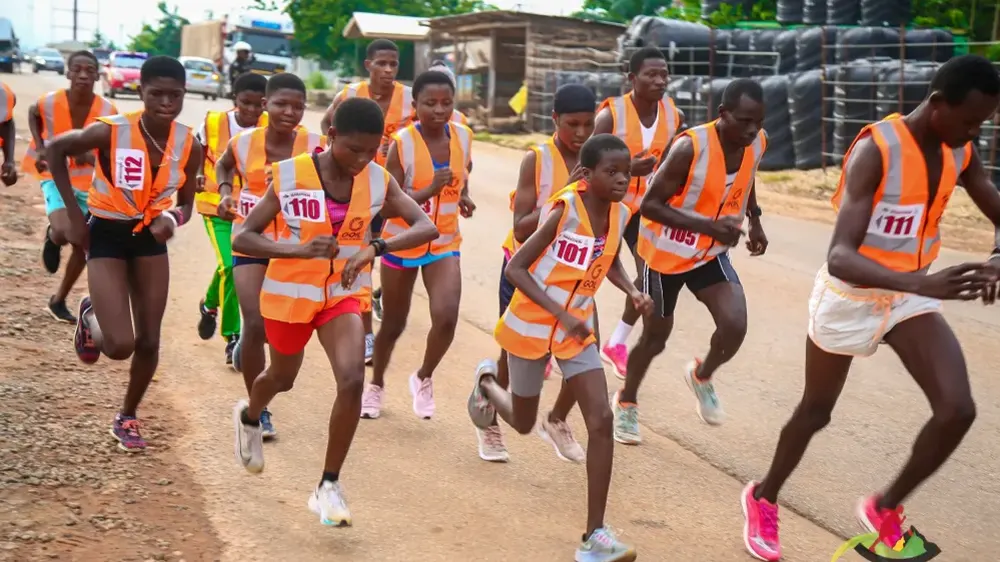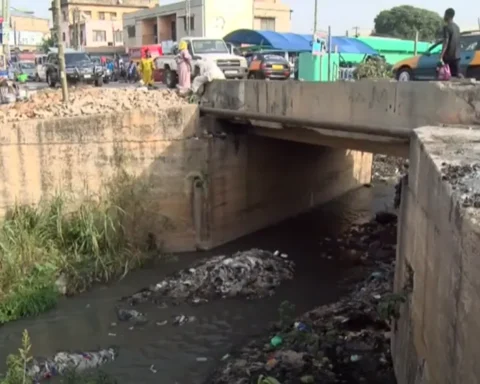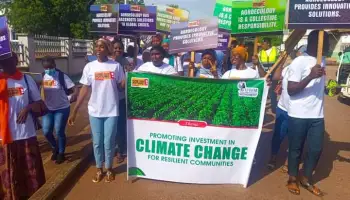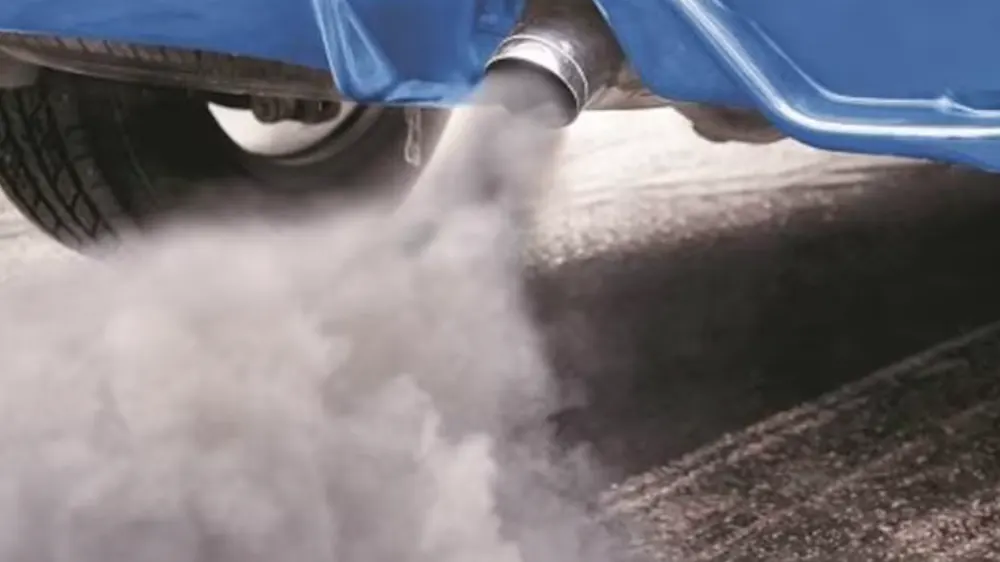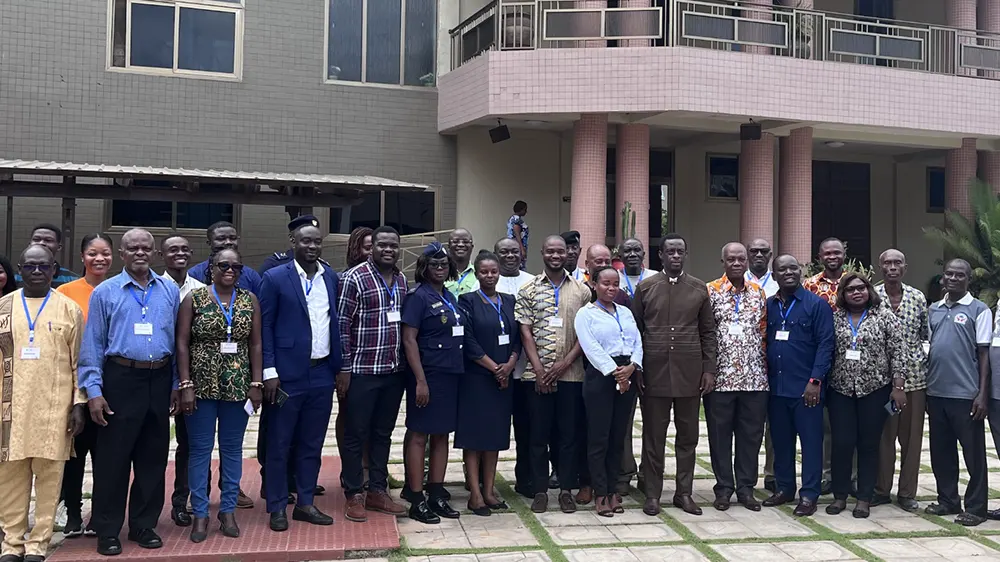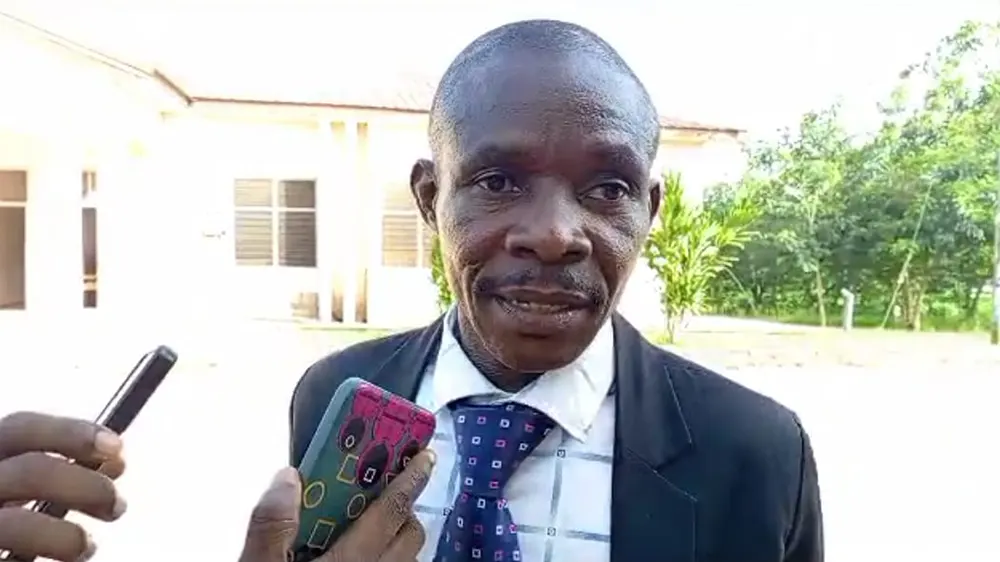Community Solutions Programme (CSP), a professional leadership development programme, has assisted two of its Ghanaian fellows to implement the Environmental Information for All Project in two communities.
The initiative, which attempts to raise awareness of environmental sustainability and climate change, is being executed by Mavis Okyere, a 2019 Community Solutions fellow, and Otuo-Akyampong Boakye, a 2021 fellow.
It is being undertaken in Juaso, Asante Akim South Municipality, Ashanti Region, and Kwahu-Fodoa in the Kwahu West Municipality of Eastern Region, with the assistance of CSP through the Cooperation for Community Impact Grant Programme.
In an interview with the Ghana News Agency, Ms Mavis Okyere stated that the project aimed to work towards the achievement of the Sustainable Development Goals 13 and 6, which all seek to ensure that urgent actions were taken to combat climate change and ensure people have access to improved water and sanitation by 2030.
She explained that the project involved the engagement of at least 60 students to translate environmental sustainability materials into audio and short videos in three primary languages and sign language for inclusion within five months.
“The project will consider the three most important environmental challenges specific to the communities and geographical area, which will be addressed with our audio and video in three local languages,” she explained, adding that the project was launched in Juaso, where several environmental issues were highlighted.
It drew together students of Juaso Methodist Junior High School pupils, teachers, and educationists among several other stakeholders.
Ms Okyere stated that many people work in the agricultural value chain and so face the consequences of climate change, including droughts, shifting rainfall patterns, and water pollution.
However, small-scale farmers produce one-third of the world's food but receive only 1.7 per cent of climate money, according to the International Fund for Agricultural Development.
Likewise, the Intergovernmental Panel on Climate Change states that roughly 3.3 to 3.6 billion people live in environments that are very sensitive to climate change.
This, Ms Okyere, noted that rural communities were often the hardest hit by extreme weather events because they were least able to cope with and recover from climate change shocks.
As a result, she stated that the first phase of the project would involve environmental sustainability capacity building, which would entail the formation of green clubs in one Senior High School in Kwahu-Fodoa and Juaso Methodist Junior High School to train and build the capacity of the club members on environmental education.
In the second phase, content for audio and video assets will be created in partnership with club members and patrons.
“We will generate compelling and real-time programming addressing specific neighbourhood environmental challenges,” she stated. “The audio and video content will be based on the three most important concerns indicated by club members from the difficulties previously highlighted.”
The third phase will include club members translating material into local languages. They will be separated into groups based on their native languages and assigned to translate the content.
Meanwhile, a technical person will be engaged to translate environmental signals into sign language.
“The last phase would be the premiere and distribution of the project's material. We will do a session at the schools where the club members created and translated the content,” Ms Okyere added.
“The second premiere will be held in the community centre for the entire community in partnership with the community leaders and youth organisation.”
She urged all to be ambassadors of change in the communities and to help protect and safeguard the environment.
Mr Otuo-Akyampong Boakye, who is also the Director of the Eco-Warriors Movement, speaking noted that growing up, the environment defined their socialization.
“Our environment provided for us goodies like mangoes, coconut and pawpaw,”, he said.
“As a child, I remember we could gather and go fruit hunting because we had a lot of fruit trees in the community.”
“I didn't need an alarm clock because the rhymes of the birds sang naturally to wake me up and got me refreshed for school….but what do we see now, trees are cut and forests destroyed in the name of development and urbanization.”
He quizzed, “The question I ask myself is will my child enjoy the greenery I did growing up.”
A clean-up exercise was undertaken at Kwahu-Fodoa with the help of the Fodor Community Senior High School students.
They carried placards some of which read: “The only way forward if we are going to enhance the condition of the environment is for everyone to become engaged,” the campaigners said, holding signs that read.
“The Earth is our common, let us defend.” “Everyone deserves access to environmental knowledge.” “Our planet's alarm is going off, and it's time to wake up and act.”



